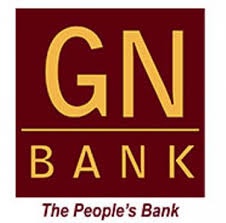 GN Bank
GN Bank
Ghana’s financial market for the first-half of 2015 was weighed down with macro-economic shocks which negatively affected the market.
Portfolio managers had to follow the market closely to take advantage of the opportunities existent in the down-market. Clearly, year-on-year analysis of Ghana Stock Exchange performance for the past four years depicts HY 2015 performance as the worst. In Half Year (HY) 2012, HY 2013 and HY 2014, total markets returns were 7.89%, 56.72% and 23.81% respectively with HY 2015 returning 4.03%.
The reasons for the under-performance can be attributed to the ongoing energy crisis that affected manufacturing equities coupled with unstable macroeconomic environments facing the nation that affected on listed equities.
However, even though the broader market clearly underperformed, some listed equities performed excellently. For instance GOIL, EGL and FML had returned 38.10%, 11.43% and 9.52% respectively to their investors as at HY 2015. FML recovery during the period was phenomenal as most manufacturing equities were hit by the energy crisis leading to poor performance during the period.
However, there are some equities on the exchange that have potentials to generate competitive returns going into the second half of the year even though analysts anticipate the second-half of the year will be burdened with similar global and domestic challenges that transpired during the first half of 2015.
The period also saw 3 listings in addition to Izwe Loans on the Ghana Alternative Market [Samba Foods Ltd, Meridian Marshal Holdings and afb Ghana] which is a parallel market to the main exchange set up to help SMEs raise capital to finance their growth prospects etc. The performance of the few equities listed on the GAX for the period was not impressive as they all traded flat after listing. However analysts anticipate more SME?s listing on GAX and that could facilitate trading activities on the GAX.
On the fixed income market, the face value of securities issued by Government of Ghana, Cocoa Board and Bank of Ghana during the Q2 2015 was about GH? 14,081 million, an increase of 63.29% over the value of GH? 8,623 million securities issued during the same quarter in 2014 by the same issuers. The persisting interest rates watered down the risk-tolerance of investors as they stashed their funds in fixed-income instruments shielded from the fluctuations on the capital market.
The Fixed Income Market for the second half of 2015 could witness marginal increase in interest rates considering a multiplicity of factors. Inflation rates are only inching upwards though 2% higher year-on-year coupled with the injection of the impending inflows from the Eurobond to be issued, cocoa loan, IMF bail-out etc. to support the ailing economy are all expected to result in an appreciable stability of the economy.
The sharp declines in the Cedi reflected weakened economic fundamentals and negated business confidence. The fixed income market became a safe-haven for investors as the effects of uncertainties posed by stock market and currency market worsened.
The Ghana Cedi exhibited a dismal performance from the beginning of the year, stabilizing in the first month but thereafter depreciating by leaps-and-bounds.
The first-tranche of the IMF bail-out which was obtained in April stalled the depreciation for only three weeks, after which the Cedi declined again to record a holistic YTD of 32.36% as at the end of June, 2015 according to GCFM Cedi Index.
With regards to Year To Day (YTD) depreciation for the period under review, USD/GHS recorded a YTD of 35.51%, GBP/GHS recorded a YTD of 37.24% with EURO/GHS recording a YTD of 24.64%. Analysts anticipates the rate of depreciation will slow during the second half as the expected USD 4billion inflow will stabilize the economy and slow depreciation.
Please download the full 2015HY financial market report